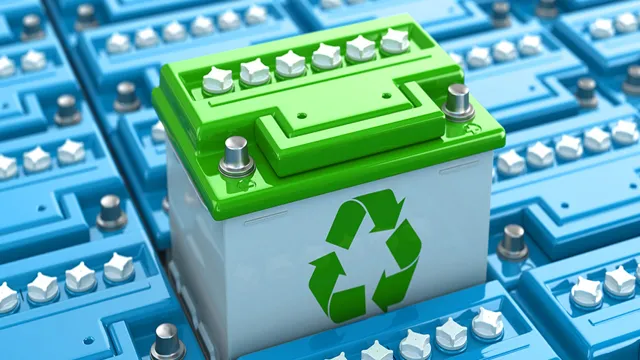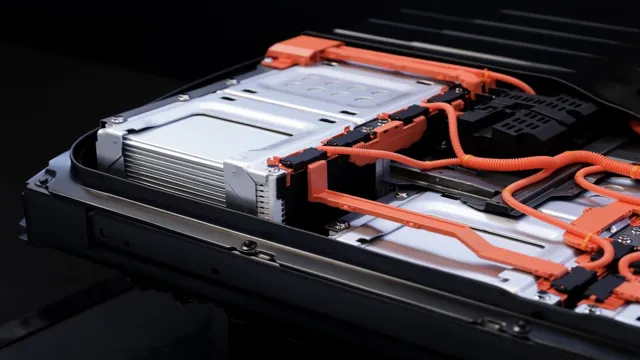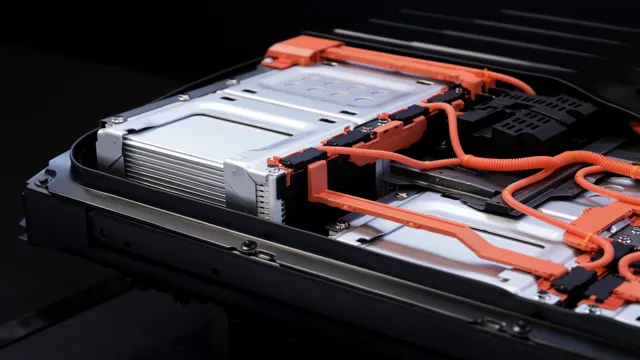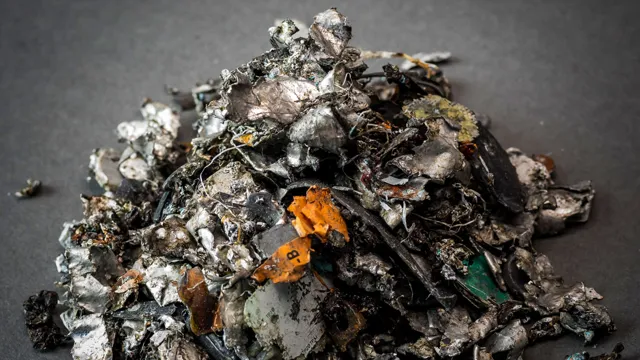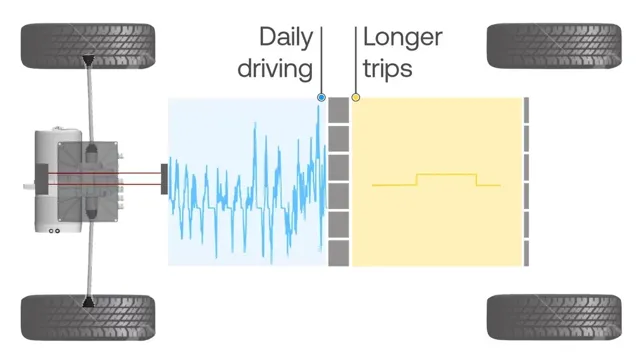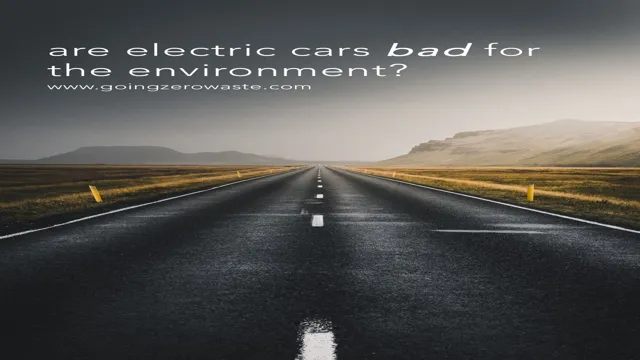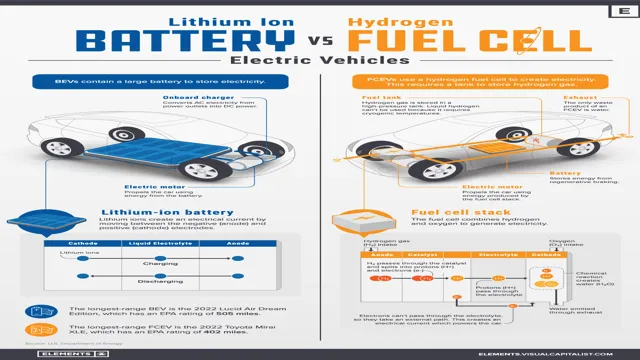Unlocking the Potential: The Truth About Recycling Electric Car Batteries
Have you ever wondered what happens to the battery of an electric car once it reaches the end of its lifespan? These batteries are a marvel of technology, but they contain hazardous materials that can harm the environment if not disposed of correctly. Fortunately, recycling electric car batteries is a viable solution that offers many benefits for both the environment and the economy. In this blog, we’ll dive into the facts about recycling electric car batteries and explore the benefits of doing so.
From reducing carbon emissions to creating jobs, recycling these batteries is a win-win for everyone involved. So, let’s take a closer look at this exciting topic and discover how we can make a difference by recycling electric car batteries!
Electric Car Batteries: Components and Environmental Impact
When it comes to electric car batteries, there are a variety of components that make up this crucial element of the vehicle. Lithium-ion batteries are commonly used due to their high energy density, durability, and ability to be recharged. These batteries consist of several components, including electrodes, electrolytes, and a casing.
While the lifespan of an electric car battery can last up to a decade, eventually they will need to be replaced. The good news is that many of the materials used in these batteries can be recycled, such as the lithium, cobalt, and nickel. By recycling these materials, we can reduce the environmental impact of electric car batteries and decrease our reliance on mined materials.
While the recycling process can be complex, the potential benefits are far-reaching, making it imperative that we continue to explore ways to recycle electric car batteries. So, can we recycle electric car batteries? Yes, and we should strive to do so in order to create a more sustainable future.
Lithium-ion Batteries: Materials and Hazardous Waste
Lithium-ion batteries are a critical component of electric vehicles and are responsible for powering the movement of these cars. While they offer impressive advantages in terms of efficiency, longevity, and compactness compared to traditional gasoline engines, their materials and hazardous waste can have significant environmental impacts. These batteries consist of several materials, including lithium cobalt oxide and graphite, which can be tricky to obtain and process while minimizing environmental damage.
In addition, their hazardous waste, which includes toxic chemicals like cobalt, can be harmful to humans and the environment if not disposed of properly. Therefore, it’s crucial to ensure the responsible production and management of lithium-ion batteries to maximize their benefits while minimizing their environmental impacts.
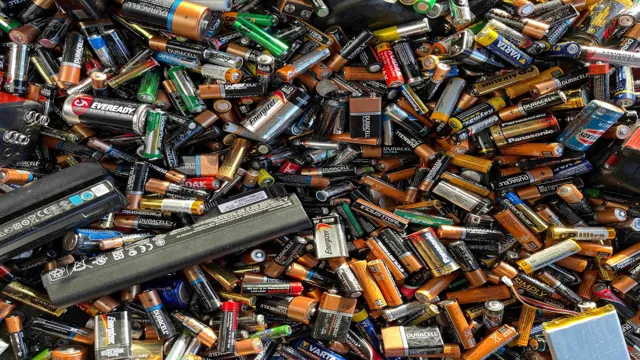
Metal Recovery: Benefits and Challenges
Electric car batteries have become increasingly prevalent in modern society due to their ability to reduce carbon emissions and promote sustainable energy. However, it is important to understand the components of these batteries and their environmental impact. Electric car batteries are primarily composed of metals such as cobalt, nickel, and lithium, which can be recovered and recycled.
Metal recovery not only reduces waste but also provides economic benefits, as these metals are valuable resources. However, the recovery process can be challenging due to the complexity of battery design and the presence of hazardous materials. Additionally, the production and disposal of electric car batteries have an environmental impact, with some studies suggesting that the overall carbon footprint of an electric car could be higher than that of a traditional gasoline-powered car.
It is vital that we continue to research and improve upon the environmental sustainability of electric car batteries to promote a cleaner future.
Recycling Programs: Current State and Innovations
When it comes to recycling programs, innovations have been made, but there are still some areas where recycling remains a challenge. One such area is electric car batteries. The recycling of electric car batteries is not as simple as tossing them into a recycling bin.
Due to the complexity of these batteries, special recycling processes are required to avoid environmental contamination. However, there is good news. Innovations in the recycling process have emerged, making it possible to re-use materials from these batteries.
For example, the valuable metals in the batteries can be extracted and reused, while the remaining materials can be subjected to a safe disposal method. As the popularity of electric cars increases, recycling programs must keep pace with new technologies. It’s important to have robust recycling programs that can keep up with this pace and protect our environment.
TESLA’s Battery Recycling Program
Tesla’s Battery Recycling Program is an innovative approach to addressing the growing problem of electronic waste. In today’s world, recycling programs have become increasingly important, and companies that are leaders in the space are making a significant impact in reducing waste. Tesla is one such company that has put a strong focus on recycling, with their battery recycling program being a standout effort.
The program follows a unique approach, where they aim to recover valuable materials from batteries, such as cobalt, lithium, and nickel, that can be repurposed for use in new batteries. This helps to reduce the number of batteries that end up in landfills and preserves natural resources. While the program is still in its early days, it has the potential to significantly reduce environmental impact and pave the way for similar programs.
It’s clear that recycling programs are crucial in today’s world, and it’s exciting to see the innovations being made in this space.
BMW’s Circular Eco-design Approach
Recycling programs. Recycling has become an essential activity now more than ever with our environment facing various threats due to pollution and degradation. BMW has been working on its circular eco-design approach, ensuring that their vehicles leave the smallest environmental footprint possible.
BMW established its first vehicle recycling program in 1994, which they continue to improve up to now. Currently, the program has recycled approximately 7 million vehicles, preventing more than 49 million tons of CO2 that would have been released.
BMW has also discovered new ways to recycle and reuse different materials. For instance, visor material may now be repurposed into insulation material for homes. Additionally, BMW is collaborating with other companies that utilize carbon fiber, recycling materials to make new car structures.
They also continue to innovate and develop new methods to reuse and recycle materials. These innovations not only enable BMW to maintain its competitive edge, but they also provide a more eco-friendly manufacturing option for the company.
Renault’s Second-life Battery Initiative
Renault’s Second-life Battery Initiative is a ground-breaking solution to the growing problem of electronic waste and environmental damage. Renault has been recycling electric vehicle batteries since 2011, and recently, it has launched “Renault Re-Factory,” a facility that focuses on giving electric vehicle (EV) batteries a second life. This innovative initiative aims to repurpose batteries that are no longer usable in electric cars but still have significant energy storage capacity.
These batteries are then used in other applications, such as energy storage systems, electric bicycles, and emergency generators. The Renault Re-Factory also uses renewable energy sources like solar power to restore and recycle these batteries. This creates a sustainable, circular economy in which materials and products are used for as long as possible, contributing to a cleaner future for everyone.
Renault’s Second-life Battery Initiative is a remarkable step toward reducing electronic waste and creating a more sustainable world.
Future of Battery Recycling: Opportunities and Limitations
Yes, it is definitely possible to recycle electric car batteries, and in fact, it is necessary for the sustainability of the electric vehicle industry. Recycling can help reduce waste and environmental impact, and can also provide opportunities for recovery of valuable materials like lithium, nickel, and cobalt. However, there are some limitations to battery recycling, such as the cost of the process and the complexity of the materials.
There is also an issue of volume, as the number of electric cars on the road is expected to increase rapidly in the coming years, which could result in a demand for large-scale recycling infrastructure. Despite these challenges, there are already companies and organizations working on improving recycling techniques and creating more sustainable processes. By investing in battery recycling technology and infrastructure, we can help ensure a more sustainable future for electric vehicles and reduce our reliance on fossil fuels.
Growing Demand and Technological Advancements
As demand for electric vehicles and other devices that rely on batteries continues to grow, so too does the need for effective battery recycling. The future of battery recycling presents both opportunities and limitations. On one hand, advancements in technology are expanding the possibilities for how batteries can be recycled and the materials that can be recovered.
However, there are still limitations in the recycling process, particularly when it comes to cost-effectiveness and scalability. While the potential for a circular economy in battery production and recycling is exciting, there are still challenges to be addressed. As the industry continues to evolve, it will be important to balance ambitions for sustainability with practical constraints on technology and infrastructure.
Ultimately, the future of battery recycling will depend on both technological innovation and strategic decision-making by policymakers and industry leaders.
Regulatory Framework and Market Constraints
Battery recycling has gained significant attention in recent years due to the demand for sustainable and environmentally-friendly practices. However, the lack of a clear regulatory framework and market constraints pose challenges for the future of battery recycling. While there are existing regulations and guidelines for handling hazardous waste, they are inadequate to handle the increasing volume of batteries.
Moreover, the lack of incentives for end-of-life battery collection and weak market demand for recycled materials exacerbate the challenges. Despite these limitations, there are opportunities for the future of battery recycling, including improving existing regulatory frameworks, enhancing consumer awareness and education, and developing innovative technologies for efficient and cost-effective recycling processes. Additionally, collaborations between stakeholders, including the government, private sector, and academic institutions, could help incentivize the market demand for recycled materials and promote sustainable battery use.
As a result, battery recycling has the potential to reduce waste and conserve natural resources, making it a critical component of the circular economy.
Conclusion: Sustainable Future of Electric Cars and Battery Recycling
In conclusion, recycling electric car batteries may seem like a daunting task, but with the growing demand for sustainable solutions, it’s a challenge worth tackling. As we shift towards a more environmentally conscious future, the recycling of these batteries is critical in reducing waste and preserving precious resources. So the next time you see an electric car on the road, remember that not only are they reducing emissions, but they’re also paving the way for innovative and eco-friendly recycling solutions.
“
FAQs
Why should electric car batteries be recycled?
Electric car batteries should be recycled to reduce waste and environmental pollution. These batteries contain toxic chemicals, and recycling helps recover valuable materials.
How are electric car batteries recycled?
Electric car batteries are typically disassembled, and the cells are crushed and melted to recover valuable metals like cobalt, nickel and lithium. The recovered metals can then be used to make new batteries or other products.
Can all electric car batteries be recycled?
Most electric car batteries are designed to be recyclable, but some older or damaged batteries may not be suitable for recycling. In these cases, they should be disposed of carefully to prevent environmental damage.
Is it expensive to recycle electric car batteries?
The cost of recycling electric car batteries can vary depending on the type and condition of the battery, as well as the recycling process used. However, in general, recycling is often less expensive than producing new batteries from scratch.
